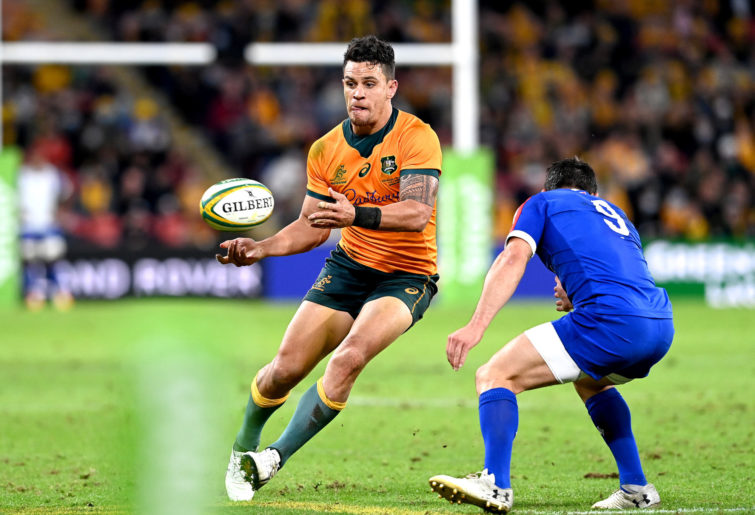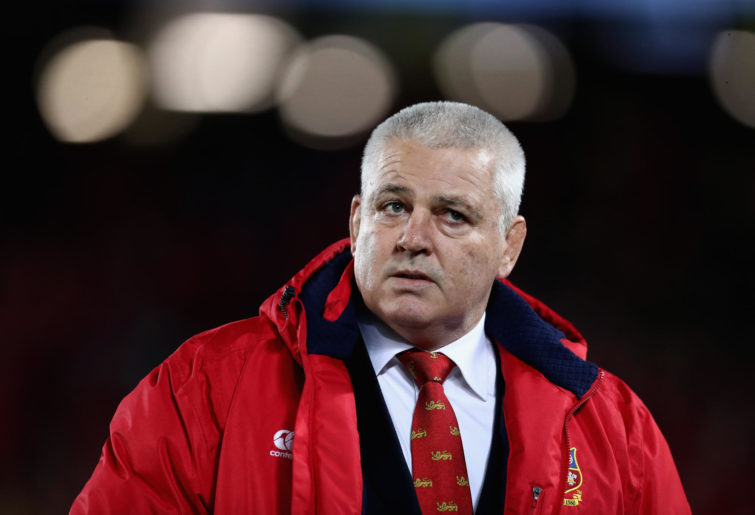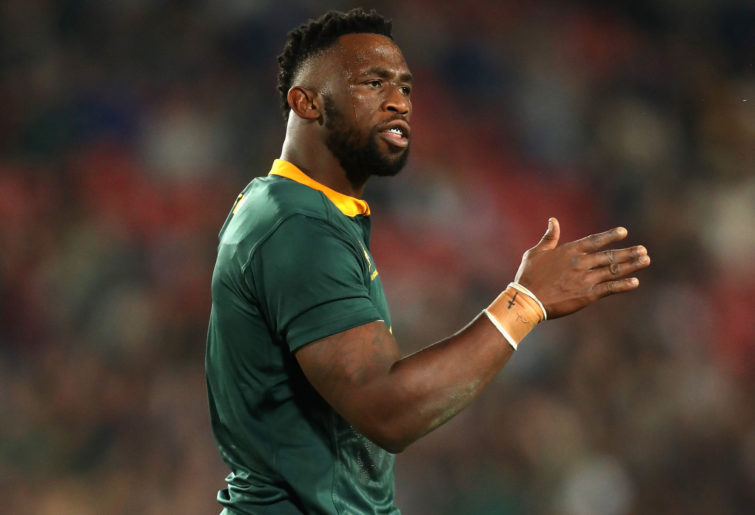Well, the Wallabies got it done last week against France, even if they did need a bit of overtime to do it.
And though most rugby fans know that a win is a win, and that you don’t have to draw a picture on the scoreboard, there’s no denying there was a fair bit of rust in the Wallabies performance.
But is that just a by-product of the professional game these days? That players are now so entrenched in domestic/club/provincial programs that national coaches have to spend time ‘un-stating’ them, to put them back on the national program?
Was there perhaps some merit in the South African need for 500 hours after all? Which they might yet get again, the way the Lions Series is looking at the moment…
Question 1: Why do you think some teams look rustier that others in their first Test of the year? And what is the biggest lesson from Brisbane that the Wallabies must get right for the 2nd Test in Melbourne?
Harry
It’s not rust, per se. It’s about depth and style.
Australia lacks depth at almost every position. To make it harder, their provincial unions have large differences in style. So, Dave Rennie has a more difficult challenge than Rassie Erasmus or Ian Foster.
The All Blacks’ challenge is pack depth. When Sam Whitelock retires, or when Cane is absent, the pack is not smart or hard enough, and the loosies are too loose. But their players are honed to a Kiwi style of tactical kicking, swift counterattack, all-court ball, speed of ruck, and precise set pieces. So their rust is simply down to form and depth.
Australia has to fight to get a real squad ready and trained and aligned. The big thing for the Wallabies to get right is to send the cleaners in hard and low and fast, after every single carry. Ball security is their Achilles heel.
Digger
It’s a difficult question to really land on anything but a handful of different reasons; new vs existing combinations, quality of the opposition, player experience.
To be frank I didn’t see a lot from any side that I didn’t really expect, all things considered. I would suggest that in the Wallabies case, they have a relatively fresh coaching team and currently do not have the same level of depth or experience to call upon as other sides, particularly in pivotal playmaking and organisational roles.
When factored in against what currently looks the best opposition thus far on the respective southern tours, it was always going to lead to some difficulties in getting cohesive game plans and combinations functioning.

Matt To’omua of the Wallabies passes the ball. (Photo by Bradley Kanaris/Getty Images)
The biggest lesson from Brisbane for the Wallabies is that they need to be more patient and effective when in possession. A quick glance of the match stats show the Wallabies had the lion’s share of possession and territory but clearly struggled through their own accuracy and decisions, and of course a committed French side to stamp their mark on the game.
When you consider the Wallabies had eight more penalties awarded, this will be key for them to turn around on Tuesday night, as more of the same and a more disciplined French effort will see the series tied up.
Geoff
It used to be customary for sides like the All Blacks in particular, to play like rusted aerosols in the first half of the first Test of the year, before gradually getting some cohesion. That doesn’t happen so much nowadays, and don’t we all remember the Pumas last year, emerging from a COVID camp and a scratch match against club players, for their greatest ever victory?
As for the Wallabies’ stuttering performance last week, I’m not so sure it was rust as much as it was some unfamiliarity around some of the combinations and a little bit of nervousness. Neither of those things should be in evidence tonight.
The biggest lesson/thing to get right? Jake Gordon to back himself and repay the faith shown in him by the selectors. The French showed him a couple of holes on the fringes that, trying to do the team thing, he ignored. You’ve got pace Jake, back yourself to use it, man!
Brett
I do agree with the depth points being made, and that’s obviously a key factor for the Wallabies, but I think fitness and conditioning plays a role in early season rust.
It was very clear that the first part of the Wallabies camp was essentially a second pre-season, and Dave Rennie even eluded early on to players from some state presenting to the national camp with significantly lower fitness and conditioning levels than others.
They knew this because the Wallabies and states have been using the same programs and software for several years now. So, for the first time in a long time, they could actually compare apples with apples.
So this extra conditioning prior to adding “a lot of detail”, as we heard regularly from the Wallabies coaches, has to have contributed to the rust; it just has to have. Hopefully, the picture will look better in Melbourne.
Speaking of which, the attacking cleanout needs to be the focus for the second Test. I mentioned last week that it was outstanding to see Angus Bell and Lachie Lonergan first on the seen when Tate McDermott went to ground with the fatally loose French ball last week, and with Rob Valetini, Darcy Swain, and Taniela Tupou not far behind.
And as I mentioned, this was great to see in the 81st minute, because there had been way too many occasions in the preceding eighty minutes where the attacking clean out was either too slow, too ineffective, or too non-existent.
But they showed when the game was on the line that they could do it. So now they need to do it.
Question 2: The Lions Series in South Africa looks to be in a really delicate position – do you think the Test matches can proceed as per the current schedule?
Harry
No, the tests will need to be in one place (Cape Town), and both camps have to stop half-measures.
The site isn’t that important if a true bio-bubble is used; it’s more about avoiding travel.
One thing not given enough attention is the Lions did not mandate vaccination (the Boks all did), and Warren Gatland has confirmed some Lions (rumoured to be as many as eight) did not get jabbed.
So, before everyone throws stones at SARU, maybe we should force the Lions to explain why they’d arrive in a developing country reeling under a third wave, with almost a dozen unvaccinated players?
Anyway, the tour must go on. The money requires it. If there are no crowds and the players and coaches are bubbled, there is a low risk to life.

Should players be obliged to get the vaccine? (Photo by David Rogers/Getty Images)
Digger
Always hard to pick one thing as being more important than anything else, especially for the first game of the year.
I’m split between a solid and cohesive defensive effort and a stable set piece, so I won’t choose. Both of those nominated will be important for the Wallabies to get right this weekend, and the season can flow forward from that solid base.
Geoff
With the important caveat that I’m not there on the ground and don’t know exactly what’s happening, things are looking grim for the series.
We all want it, but we also want a series that is fair and genuine; a proper test of both the Lions and Boks’ true abilities. A little asterisk is ok, we all know it’s a weird time.
But if that asterisk is too big, then it almost becomes like, perhaps we shouldn’t bother.
As Bob Dylan put it so beautifully on his brilliant 1997 album, ’Time Out of Mind’… “It’s not dark yet, but it’s getting there.”
Brett
It’s really hard to see how the schedule remains unchanged now, with more Springboks testing positive to COVID, including skipper Siya Kolisi as this all comes together. The total of impacted players and staff now rising above 20 is a massive concern, as is that the rest of the ‘Boks squad has only just emerged from six days of isolation.
Already, tour games have been switched, and the Sharks had to back up for a second game when the Bulls weren’t able to play just on the weekend.
I certainly agree with Harry that once the series gets to Cape Town this week, that it may not leave. And in a pure logistics sense, staying in one place would seem more logical now, with South Africa consistently recording more than twenty thousand new cases over the last few days.

How will Covid impact the Lions series? (Photo by David Rogers/Getty Images)
But equally, it feels like the whole thing could have the pin pulled if the number keeps growing within the ‘Boks camp, too. There will surely be a number within the squad where training becomes difficult, and hopefully reports in the last day or so about new rounds of negative tests are a good sign.
There is already going to be a question mark or an asterisk or something applied to this series when it enters the realm of rugby history, and it would be a great shame if the last of the true rugby tours was forced to end abruptly.
Yet, it feels a long way from being out of the woods just yet.
Digger
No, I do not see how and nor should it. The priority should be to get the respective squads fit and healthy and ready to play the test matches alone.
It would seem the right way to do so would be to isolate each squad and do so at one venue, cancelling the remaining non test matches so to minimise any further exposure risk and concentrating on getting three quality test matches played.
OVER TO YOU: What’s the biggest lesson for the Wallabies from Brisbane to Melbourne?
And is more change inevitable for the Lions Series?
Original source: https://www.theroar.com.au/2021/07/13/the-thursday-rugby-two-up-on-tuesday-be-gone-first-up-rustiness/
https://therugbystore.com.au/the-rugby-two-up-its-not-rust-australia-lacks-depth-in-every-position/
No comments:
Post a Comment